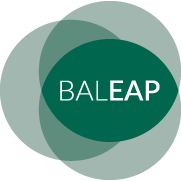Project Work has become an establish method of developing study skills in Foundation Year students at the University of Leeds Language Centre, exploiting the University's and the Language Centre's facilities, as well as classroom materials. Some of the students also sourced the Internet for additional information. Many, though, had limited experience in accessing information in this way, and in computer skills in general, which could potentially place them at a disadvantage in their future studies. In order to promote the learning of these skills in the students, it was decided that Internet sources should form part of project input. This session demonstrated the Internet elements of a project on Earth Sciences and the design of the student worksheets, including the academic skills development targetted. There was some consideration of the ways in which the students were encouraged to approach their task and to review completed units in the context of a final written assignment. Student feedback was presented and discussed, as well as the impact of this method of working on the written assignment.
Student/Staff involvement: 70 students (26 nationalities) and 5 members of staff
| The project: |
Third project students had done. |
| Project elements: |
Weeks 7-11 in Semester 2; 4 weeks input, 1 week writing up. |
| Skills targetted |
Internet Skills (expected to be independent users by end) |
| Worksheet instructions: |
Include location + instructions in symbols (sidebar etc.). Students could be asked to complete a diagram on the worksheet for e.g. using the Internet information - text to match diagram, then can answer questions on worksheet. |
| Exercise types: |
Info transfer (text to diagram/table) |
| Student format: |
Can work individually, pairs, groups |
| Student feedback: |
on study facilities/worksheets/relation to course objectives/work methods and preferences Usual problems re. use of computers (error messages) |
| Students suggestions: |
Vocabulary lists and glossary of technical terms |
| Impact on assignment: |
New general vocabulary being deployed |
| Conclusions: |
Students learned a lot of objectivity (via evaluation tasks) |

